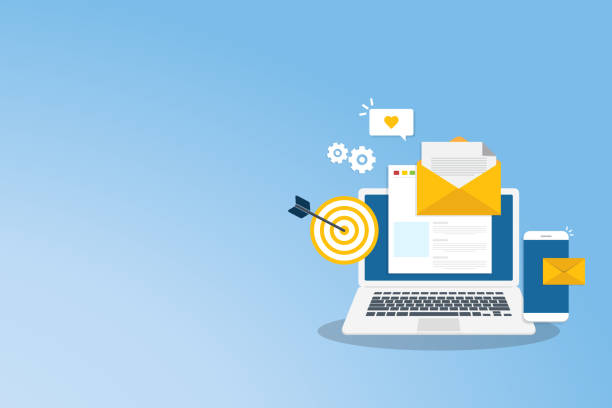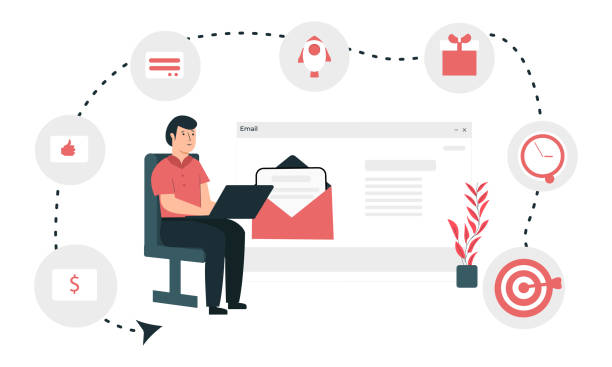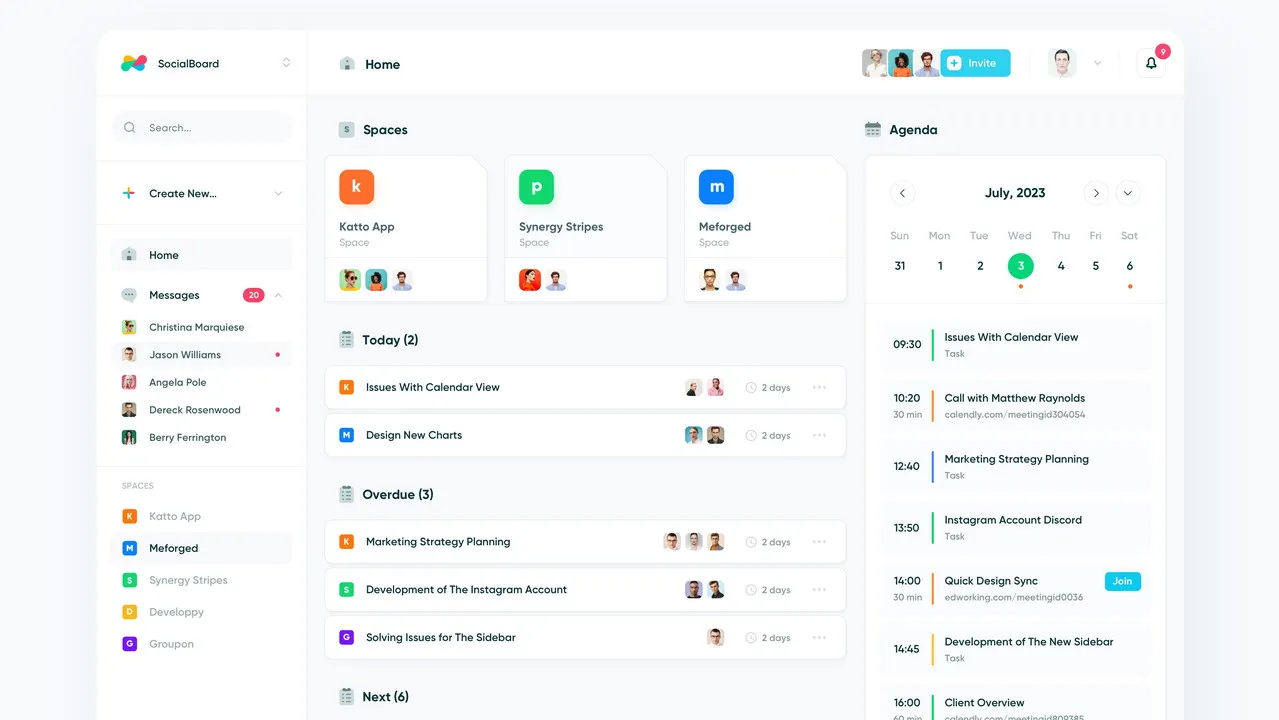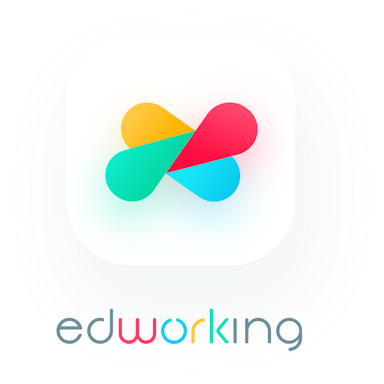Imagine this: companies that use marketing automation see an average increase in lead generation by 80% and a boost in sales productivity by 14.5%. Impressive, right? Yet, despite the clear benefits, many enterprises still grapple with inefficiencies in their marketing efforts, even in a digital-first world.
So, what’s the issue? It’s not a lack of tools—there are plenty out there. The problem lies in managing complexity, integrating processes, and aligning teams. Without a clear strategy or the right tools, marketing teams often waste valuable time on repetitive tasks, siloed systems, and missed opportunities.
The good news? Enterprise marketing automation offers a solution. By combining smart tools and tailored strategies, you can simplify operations, improve collaboration, and achieve better results. In this article, we’ll dive into the best tools and actionable strategies to help your enterprise maximize the potential of marketing automation. Let’s get started!
 Understanding Enterprise Marketing Automation
Understanding Enterprise Marketing Automation

What Is Marketing Automation?
At its core, marketing automation is like having a virtual assistant for your marketing team—one that never takes a day off, never misses a deadline, and always follows the plan. It’s the use of technology to streamline, automate, and measure repetitive marketing tasks and workflows.
Think of it this way: If traditional marketing is manually planting seeds one by one, marketing automation is using a precision farming machine that plants, waters, and monitors your crops—all while you focus on planning the next harvest.
A marketing automation platform typically offers features like:
- Lead nurturing through automated email campaigns.
- Behavioral tracking to understand customer interactions.
- Segmentation tools for targeted messaging.
- Integration with CRM systems for seamless data sharing.
- Campaign analytics to measure performance and optimize strategies.
By implementing these tools, enterprises can move from chaotic manual processes to an organized and efficient system that delivers measurable results.
Why Does Automation Matter in Enterprise Marketing?
For enterprises, marketing often involves juggling multiple campaigns, channels, and audiences. Without automation, this can feel like trying to catch water in a sieve—time-consuming and ineffective.
Marketing automation matters because it enables enterprises to:
- Scale operations without increasing manual workloads.
- Improve lead nurturing by delivering personalized content at the right time.
- Align sales and marketing teams with unified data and goals.
Here’s a question for you: Would you prefer juggling manual processes, spending hours on repetitive tasks, and risking human error—or letting smart tech handle the grunt work so your team can focus on strategy? The choice seems obvious, doesn’t it? With automation, enterprises unlock the potential to not only reach more customers but also engage them meaningfully.
 Top Tools for Enterprise Marketing Automation
Top Tools for Enterprise Marketing Automation
CRM-Integrated Platforms
When it comes to enterprise marketing automation, CRM-integrated platforms are indispensable. Tools like HubSpot and Salesforce Marketing Cloud offer seamless integration between your customer relationship management (CRM) system and marketing efforts.
Why is integration so essential?
Imagine having customer data in one place but your marketing campaigns in another—inefficient, right? A CRM-integrated platform ensures that your marketing team has access to up-to-date customer information, enabling:
- Personalized outreach based on customer behavior and preferences.
- Better lead management, with sales and marketing teams aligned.
- Automated workflows that trigger specific actions, like sending an email when a lead downloads a resource.
With these tools, enterprises can unify data, eliminate silos, and deliver more impactful campaigns.

Email Marketing Tools
Email is still one of the most effective channels for reaching customers, and tools like Mailchimp and ActiveCampaign make it easier than ever to harness its power.
Benefits of email marketing tools for enterprises
- Lead nurturing: Automate drip campaigns to guide leads through the sales funnel.
- Personalized outreach: Use dynamic content to tailor emails to individual recipients.
- Performance tracking: Monitor open rates, click-through rates, and conversions to refine strategies.
Whether you’re sending a welcome email or re-engaging dormant leads, these tools ensure your messages land at the right time—and resonate with the right audience.
Social Media Automation
Managing multiple social media accounts can be overwhelming, but tools like Hootsuite and Buffer take the hassle out of the equation.
How can social media automation help?
- Scheduling posts: Plan and queue content across platforms like LinkedIn, Twitter, and Instagram.
- Engaging at scale: Respond to comments, messages, and mentions efficiently.
- Monitoring performance: Analyze metrics to understand what resonates with your audience.
By automating routine tasks, these tools free up time for your team to focus on creating engaging content and building meaningful connections.
AI-Powered Marketing Tools
The future of marketing automation is here, and it’s powered by AI. Tools like Marketo and Drift leverage artificial intelligence to supercharge your campaigns.
What can AI do for marketing automation?
- Predictive analytics: Analyze customer data to forecast behavior and recommend next steps.
- Chatbots: Engage with website visitors in real time, answering questions and capturing leads.
- Content recommendations: Deliver personalized suggestions to users based on their preferences.
With AI, enterprises can go beyond automation to create campaigns that feel intuitive and deeply personal.
Data and Analytics Platforms
You can’t improve what you don’t measure, which is why tools like Google Analytics and Tableau are critical for enterprise marketing automation.
Why are actionable insights so important?
- Campaign optimization: Understand which channels are driving the most ROI.
- Audience segmentation: Identify patterns and trends to refine targeting.
- Performance tracking: Measure success across key performance indicators (KPIs).
By turning raw data into actionable insights, these platforms empower enterprises to make smarter, more informed decisions.
 Key Strategies for Successful Enterprise Marketing Automation
Key Strategies for Successful Enterprise Marketing Automation

Personalization at Scale
Personalization is the secret sauce of successful marketing. With enterprise marketing automation, you can tailor messages across email, social media, and websites—without spending hours on manual customization.
Why is personalization so effective?
- Email campaigns: Personalized subject lines and dynamic content can boost open rates and engagement. For example, recommending products based on browsing history makes emails feel relevant and valuable.
- Social media: Platforms like LinkedIn and Instagram thrive on authentic, targeted content. Automation tools allow you to deliver the right message to the right audience at the perfect time.
- Web experiences: Tools like dynamic landing pages adapt content to match user preferences, creating a seamless and engaging experience.
By scaling personalization, you can make your audience feel seen and valued, no matter how large your customer base grows.
Customer Journey Mapping
Customer journey mapping is like drawing a roadmap to your customers’ hearts—and automation tools are your GPS. By understanding and mapping out each step of the customer journey, you can anticipate their needs and guide them toward conversion.
How to create accurate journey maps
- Analyze data: Use insights from analytics tools to understand customer behavior at every touchpoint.
- Define stages: Break the journey into stages like awareness, consideration, and decision.
- Automate touchpoints: Use automation to trigger personalized messages or offers based on where a customer is in their journey.
For example, if a lead downloads a free guide, your automation system can send a follow-up email offering a case study or product demo, keeping them engaged and moving forward.
Lead Scoring and Segmentation
Lead scoring and segmentation are like matchmaking for your marketing campaigns—connecting the right message with the right audience at the right time.
The role of segmentation:
- Group your audience based on criteria like demographics, behavior, or purchase history.
- Send highly targeted campaigns that resonate with specific segments. For instance, promote premium products to high-value customers while offering discounts to price-sensitive leads.
The magic of lead scoring:
- Assign scores to leads based on their actions (e.g., website visits, email clicks).
- Focus your efforts on high-scoring leads that are more likely to convert.
These strategies ensure your team spends time where it matters most, maximizing ROI.
Workflow Automation
Workflow automation is like having an extra pair of hands—or ten—on your team. By automating repetitive tasks, you free up valuable time and eliminate the risk of human error.
Examples of automated workflows
- Follow-up emails: Send timely messages to leads who fill out forms or abandon carts.
- Report generation: Automate the creation of weekly or monthly performance reports, so your team can focus on insights rather than formatting.
- Social media scheduling: Plan and queue posts across multiple channels to maintain a consistent presence.
These automated workflows not only boost efficiency but also ensure no opportunity slips through the cracks. With automation handling the busywork, your team can focus on creativity and strategy.
 Common Challenges and How to Overcome Them
Common Challenges and How to Overcome Them

High Implementation Costs
One of the biggest hurdles for enterprises adopting marketing automation is the upfront cost. Tools and platforms with advanced features can be expensive, especially for organizations that are just starting out.
How to overcome this challenge
- Start small: Choose scalable tools that align with your immediate needs and can grow with your organization. For example, start with an email automation platform before investing in an all-in-one suite.
- Leverage free or low-cost trials: Many platforms like Mailchimp or HubSpot offer free plans or trials that allow you to test functionality before committing to a paid version.
- Focus on ROI: Frame automation as an investment rather than a cost. Highlight how it saves time, improves efficiency, and ultimately increases revenue.
By starting small and scaling strategically, enterprises can keep costs manageable while reaping the benefits of automation.
Lack of Training or Buy-In
Even the best tools are ineffective if your team doesn’t know how to use them—or worse, if they resist adopting them. Lack of training and buy-in from employees is a common roadblock to successful implementation.
How to overcome this challenge
- Provide hands-on training: Arrange workshops, webinars, or one-on-one sessions to help your team understand the platform’s features and how to use them effectively.
- Highlight benefits: Show your team how automation reduces repetitive tasks and frees up time for strategic work.
- Secure leadership endorsements: When executives champion the initiative, it builds trust and motivates teams to embrace the change.
Engaging your team early and equipping them with the right knowledge ensures smoother adoption and long-term success.
Data Privacy Concerns
In an era of increasing regulations and consumer awareness, enterprises must prioritize data privacy when implementing marketing automation. Mishandling customer data can lead to legal penalties and reputational damage.
How to overcome this challenge
- Choose compliant tools: Opt for platforms that comply with data protection regulations like GDPR (General Data Protection Regulation) and CCPA (California Consumer Privacy Act).
- Implement strict data policies: Regularly audit your data collection and storage practices to ensure they meet legal and ethical standards.
- Educate your team: Provide training on data privacy regulations and how to manage customer data responsibly.
By building trust with customers and adhering to regulations, enterprises can mitigate risks while maintaining effective marketing operations.
 Connecting Automation to Edworking's Unique Features
Connecting Automation to Edworking's Unique Features

Edworking’s Role in Marketing Automation
In the realm of enterprise marketing automation, having the right tools can make all the difference. Edworking stands out by offering a comprehensive suite of AI-powered features designed to streamline workflows and enhance productivity.
AI Tools to Simplify Workflows
Edworking provides a variety of AI tools tailored to boost creativity and efficiency:
- AI Writing Tools: From blog title generators to paraphrasing and conclusion tools, these features expedite content creation, ensuring your marketing materials are both engaging and polished.
- AI Image Tools: Generate custom visuals, including stock photos, concept art, 3D models, and avatars, to elevate your digital marketing projects without the need for extensive design expertise.
- Social Media Enhancements: Utilize tools like the Instagram Caption Generator and Hashtag Generator to automate and optimize posts, boosting engagement across platforms.
Task Organization and Team Collaboration
Edworking excels in facilitating seamless collaboration and efficient task management:
- Integrated Workspaces: Organize tasks, files, and stories within specific workspaces, ensuring projects are structured and easily accessible to your team.
- Real-Time Communication: Features like chat, video calls, and stories enable instant interaction, keeping team discussions organized and on track.
- Document Collaboration: A full-featured editor with AI writing assistance allows teams to create, edit, and share documents efficiently, with options for public sharing and PDF export.
By integrating these tools, Edworking not only simplifies workflows but also fosters a collaborative environment essential for effective marketing automation.
Why Edworking Stands Out
In a crowded market of collaboration platforms, Edworking distinguishes itself through several key features:
- Real-Time Collaboration: With integrated video calls, chat, and collaborative workspaces, teams can communicate and work together seamlessly, regardless of location.
- AI-Powered Productivity: The platform's AI tools are fully embedded, ensuring a smooth and intuitive user experience that enhances efficiency across various professional tasks.
- Comprehensive Integration: Edworking consolidates multiple functionalities—task management, file sharing, communication—into one platform, reducing the need for multiple tools and thereby saving costs.
For more insights into how Edworking can transform your team's collaboration and productivity, explore and read their comprehensive review.
By leveraging Edworking's unique capabilities, enterprises can effectively automate their marketing efforts while fostering a cohesive and productive team environment.
 Conclusion
Conclusion
Marketing automation is a game-changer for enterprises looking to scale their efforts, improve lead nurturing, and drive better results. Tools like CRM-integrated platforms, email marketing solutions, social media schedulers, AI-powered innovations, and data analytics platforms form the backbone of successful automation strategies. By leveraging these tools and employing strategies like personalization, customer journey mapping, and workflow automation, businesses can achieve unparalleled efficiency and engagement.
However, automation is not without its challenges—be it implementation costs, training gaps, or data privacy concerns. The good news? These obstacles can be overcome with scalable tools, proper team education, and compliance-focused solutions.
Now is the perfect time to take your marketing to the next level. Explore the wide range of marketing automation tools available and pair them with platforms like Edworking to maximize your ROI. With its powerful suite of AI and collaboration features, Edworking can help you streamline workflows, boost team productivity, and craft winning campaigns—all in one place.
Ready to transform your marketing game? Dive into Edworking’s features today and experience how automation can empower your enterprise to achieve more with less effort. Let the tools work for you, so you can focus on what truly matters: growing your business.
 FAQs
FAQs
What is enterprise marketing automation?
Enterprise marketing automation involves using software and tools to streamline, manage, and measure marketing processes across various channels. It helps businesses scale their efforts, nurture leads, and improve collaboration between teams by automating repetitive tasks and providing actionable insights.
Which industries benefit most from marketing automation?
Marketing automation is versatile and benefits industries such as retail, healthcare, technology, finance, and education. Any industry that relies on managing customer relationships, running multi-channel campaigns, or improving team efficiency can leverage automation for better results.
What are the key features to look for in a marketing automation platform?
The key features include CRM integration, email marketing, social media scheduling, lead scoring, workflow automation, and analytics. Additionally, AI-powered functionalities like predictive analytics and personalized content generation can significantly enhance your campaigns.
How does marketing automation improve lead generation?
Marketing automation captures leads through forms, website tracking, and social media. It then nurtures these leads with targeted email campaigns, personalized offers, and timely follow-ups, ensuring higher engagement and conversion rates.
Are marketing automation tools expensive?
Costs vary depending on the platform and features. Many tools, like HubSpot and Mailchimp, offer free plans with basic features, while advanced tools like Salesforce Marketing Cloud may require a more significant investment. Starting small with scalable solutions is a cost-effective approach.
How does Edworking enhance marketing automation?
Edworking integrates AI tools that simplify workflows, from content creation to social media management. Its collaborative features allow teams to align marketing tasks, track progress, and share real-time updates, making it an all-in-one solution for marketers.
Is marketing automation suitable for small businesses?
Absolutely! Marketing automation tools are not just for large enterprises. Scalable and affordable options like ActiveCampaign or Mailchimp help small businesses manage their campaigns efficiently while staying within budget.
How can AI improve marketing automation?
AI enhances automation by analyzing customer behavior, predicting trends, and generating personalized content. Tools like Marketo or Drift use AI for predictive analytics, chatbots, and real-time customer engagement, helping businesses stay ahead of the curve.
What are common mistakes to avoid in marketing automation?
Common pitfalls include over-automating (losing the personal touch), failing to segment audiences properly, and not analyzing campaign performance. Ensuring proper training and regular audits of your automation strategy can help avoid these mistakes.













